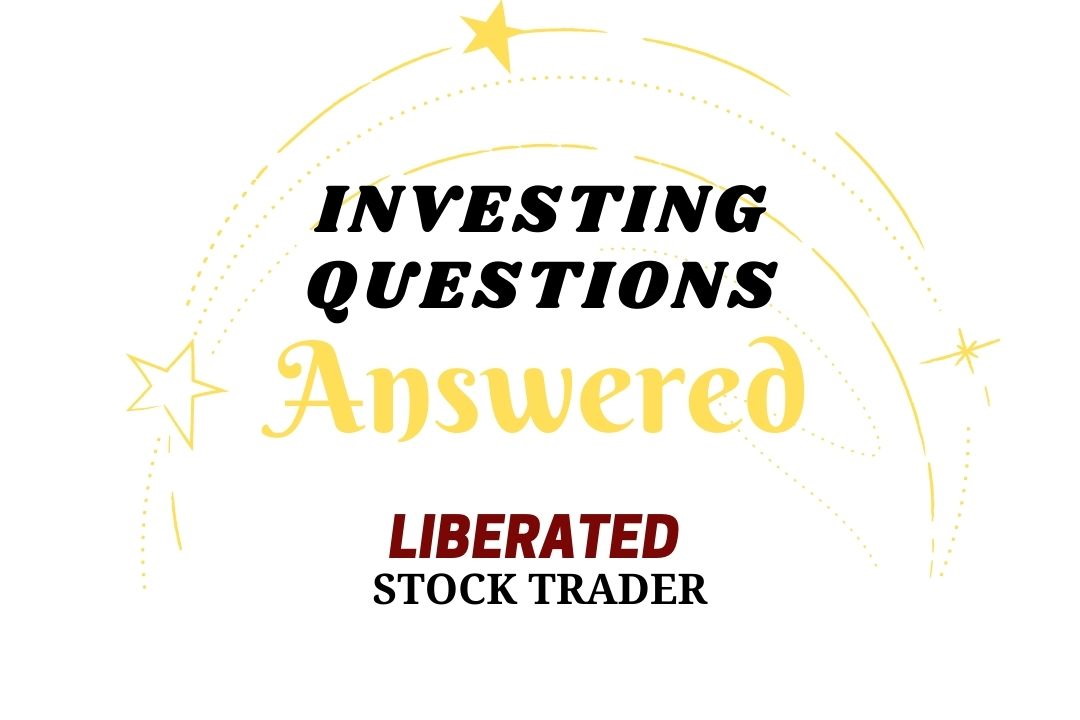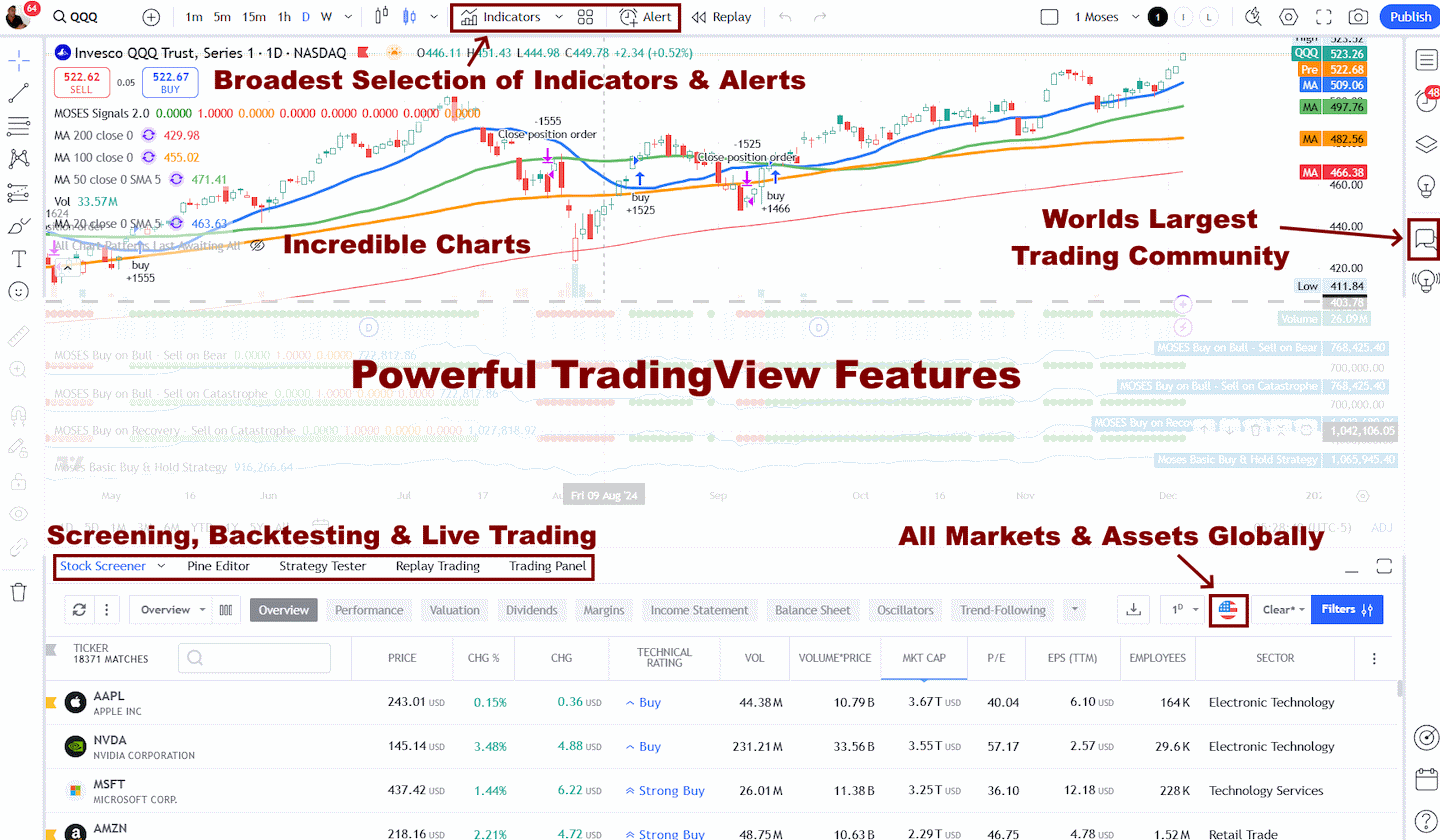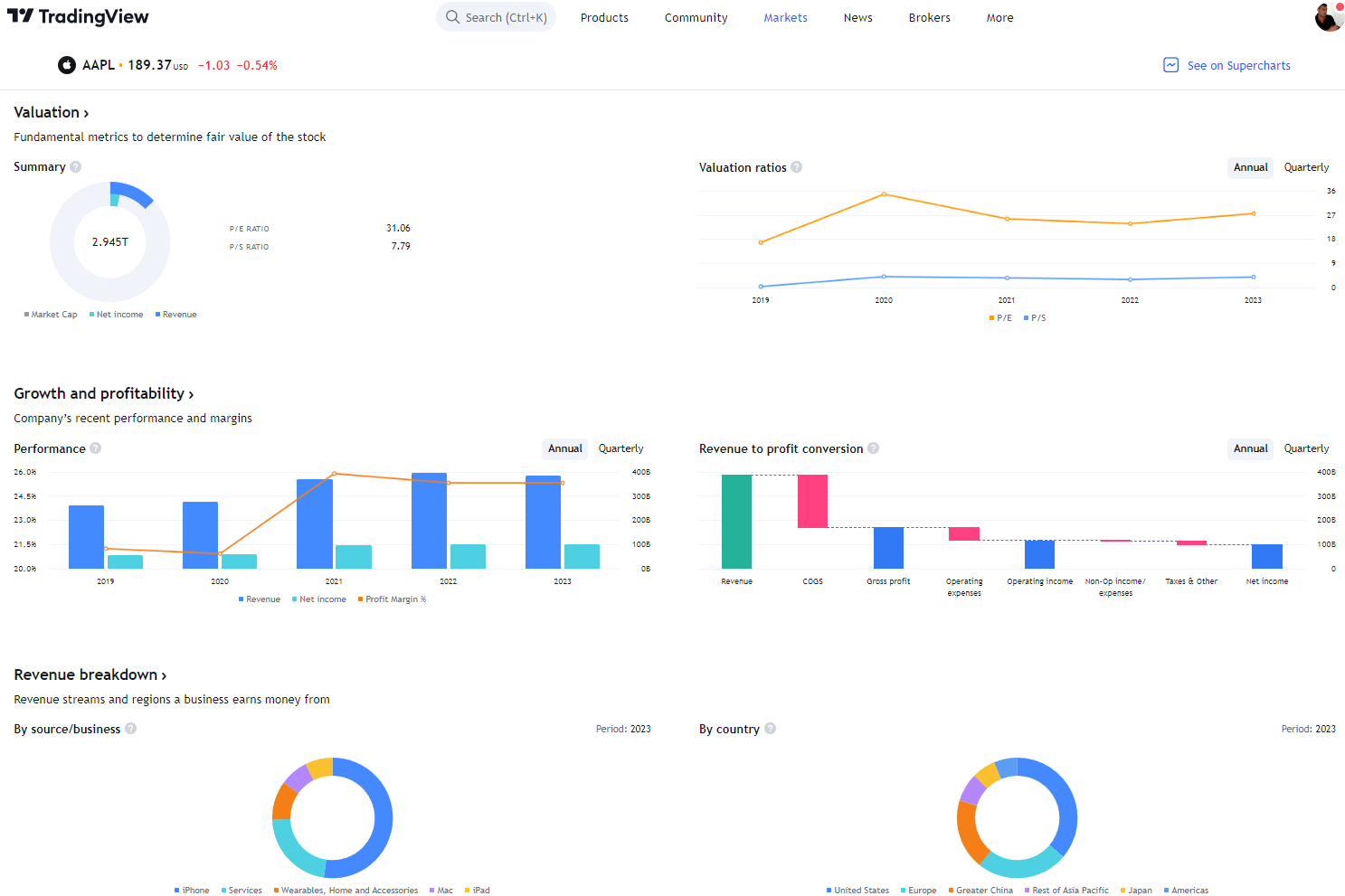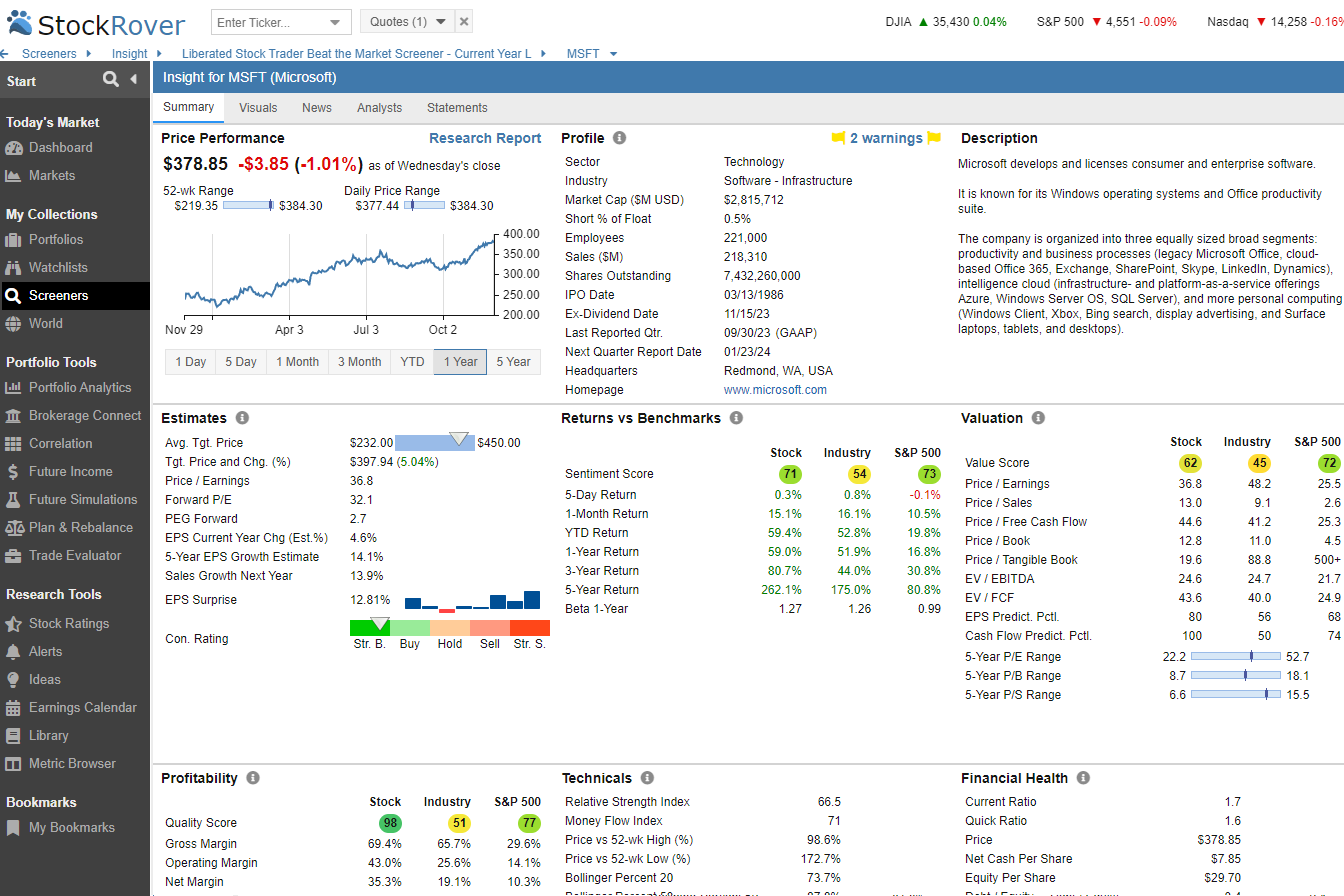Stock exchanges serve as a platform for buying and selling securities, allowing investors to trade shares of companies easily.
By enabling the allocation of capital, they help businesses grow and contribute significantly to economic development.
Stock exchanges are arguably the single most effective method of allocating capital, powering economic growth, and expanding the wealth of nations. However, left unregulated, they become a systemic regional and global risk.
Stock exchanges have evolved from simple marketplaces to complex financial institutions. They not only provide a space for trading but also ensure the efficient functioning of the market through regulations and oversight. This helps maintain investor confidence and market integrity.
Key Takeaways
- Stock exchanges facilitate the buying and selling of securities.
- Stocks, ETFs, and Mutual Funds are traded on stock exchanges.
- Most people’s retirement funds are linked to the performance of stocks.
- Technological advances are shaping the future of stock exchanges.
- 70% of short-term trades are executed by robotic algorithms.*
In recent years, technological advances have transformed stock exchanges, making trading faster and more accessible. These changes have opened up new opportunities for investors and companies alike while also presenting new challenges in terms of regulation and security.

Stock Exchange History
Stock exchanges have transformed from early physical trading venues to today’s sophisticated electronic platforms. Technological advancements and the need for efficient capital markets drove this evolution.
The Birth of Stock Exchanges
The concept of stock exchanges began in the early 17th century. The Amsterdam Stock Exchange, established in 1602 by the Dutch East India Company, is widely regarded as the first official stock exchange. Traders bought and sold shares and bonds, which set the groundwork for modern trading.
The London Stock Exchange (LSE) and the New York Stock Exchange (NYSE) were founded in the late 1700s. Both played crucial roles in the industrial expansion of their respective countries. These exchanges became central to capital formation and economic growth.
The Growth of Electronic Trading Platforms
The transition to electronic trading began in the late 20th century. Before electronic platforms, trading was done manually on trading floors. This method was slower and prone to human error.
The NYSE introduced electronic trading in the 1970s, which transformed the financial markets. The London Stock Exchange also embraced technology to cater to growing trade volumes. Today, electronic trading is the norm, allowing faster and more efficient transactions across global markets.
Emerging markets like the Shanghai Stock Exchange have also integrated electronic trading systems. This ensures they can compete on the international stage and offer advanced services to investors.
My thorough testing awarded TradingView a stellar 4.8 stars!
With powerful stock chart analysis, pattern recognition, screening, backtesting, and a 20+ million user community, it’s a game-changer for traders.

Whether you're trading in the US or internationally, TradingView is my top pick for its unmatched features and ease of use.
Explore TradingView – Your Gateway to Smarter Trading!
Major Global Exchanges and Their Development
Several major global exchanges have significantly impacted financial markets. The NYSE, founded in 1792, is the largest stock exchange by market capitalization. It has gone from a small group of brokers to a global financial powerhouse.
The London Stock Exchange, one of the oldest, has been instrumental in developing international financial standards. The LSE’s embrace of technology has kept it competitive in modern markets.
The Shanghai Stock Exchange, established in 1990, has rapidly grown to be one of the largest in Asia. Its development reflects China’s economic expansion and integration into the global economy.
Each of these exchanges has a unique history but shares a commitment to facilitating trade and driving economic growth.
Core Functions of Stock Exchanges
Stock exchanges play a critical role in the economy by enabling companies to raise capital, ensuring liquidity, and maintaining fair and orderly trading. These key functions benefit both companies and investors, making the market more efficient and transparent.
Facilitating Capital Formation
Stock exchanges enable companies to raise funds through the capital markets. By listing on an exchange, companies can access a larger pool of investors through an initial public offering (IPO). This process helps companies accumulate the necessary capital to expand operations, innovate, or pay off debt.
Capital formation is essential for economic growth. It allows businesses to invest in new projects and create jobs. The listing requirements ensure that companies provide transparent and accurate financial information, building trust with investors.
Providing Liquidity and Marketability for Securities
One of the primary roles of stock exchanges is to provide liquidity. Liquidity means that investors can quickly buy or sell securities without significantly affecting the price. This is crucial for stocks of listed companies, as it ensures that investors can enter or exit positions with ease.
Market makers play an important role in maintaining liquidity. They offer bid and ask prices for securities, ensuring that there is always a market for buying and selling. High liquidity also attracts more investors, fostering a more vibrant and active market.
Try TradingView, Our Recommended Tool for International Traders
Global Community, Charts, Screening, Analysis & Broker Integration

Global Financial Analysis for Free on TradingView
Ensuring a Platform for Fair and Orderly Trading
A core function of stock exchanges is to provide a platform for fair and orderly trading. This includes strict regulation and oversight to prevent fraudulent activities and ensure transparency. Exchanges set rules and guidelines that all listed companies and market participants must follow.
Regulatory bodies work closely with stock exchanges to uphold market integrity. Trading systems are designed to match buy and sell orders efficiently while maintaining order in price fluctuations. This fair trading environment protects investors and sustains market confidence.
Regulatory Framework and Market Oversight
Stock exchanges operate under a robust regulatory framework to ensure market integrity and investor protection. This involves the oversight of several key players and stringent listing and governance requirements to promote transparency and fair trading practices.
Role of the Securities and Exchange Commission (SEC)
The U.S. Securities and Exchange Commission (SEC) regulates securities markets, including stock exchanges, to maintain fair and efficient markets. It enforces securities laws, ensures accurate financial reporting, and protects investors from fraud. The SEC requires periodic disclosure of financial information to keep markets transparent. This includes annual and quarterly reports, which provide insight into a company’s financial health and governance practices.
The SEC also sets rules for trading practices to prevent market manipulation and insider trading. It oversees self-regulatory organizations (SROs), such as the Financial Industry Regulatory Authority (FINRA), which monitor market activities on a day-to-day basis. The SEC’s enforcement actions include penalties, fines, and other measures to ensure compliance with securities laws.
Listing Requirements and Corporate Governance
Stock exchanges have specific listing requirements that companies must meet to trade their securities. These requirements ensure that listed companies adhere to high standards of financial and ethical practices. Companies must provide detailed financial reports and adhere to corporate governance standards, including board composition, audit committees, and shareholder rights.
Listing standards can vary between exchanges but generally include criteria such as market capitalization, minimum share price, and financial health. Good corporate governance practices are crucial as they impact a company’s performance and investor trust. Exchanges can delist companies that fail to meet these standards, thereby protecting investors from potential risks.
Surveillance and Combating Market Abuse
Stock exchanges and the SEC employ sophisticated surveillance systems to monitor trading activities in real time. These systems detect unusual trading patterns that may indicate fraudulent activities like market manipulation or insider trading. Surveillance ensures the integrity of the trading environment by preventing activities that could distort market prices or harm investors.
FINRA plays a crucial role in investigating suspicious activities and enforcing regulations. They use data analytics and other technological tools to track and analyze trades. By rapidly identifying and addressing market abuse, regulatory bodies maintain investor confidence and ensure fair market practices.

Try Powerful Financial Analysis & Research with Stock Rover
Technological Advances and Future Trends
Technological advancements have significantly transformed stock exchanges, enhancing efficiency and creating new trading opportunities. This section discusses key changes, including the shift from physical to electronic trading, the role of artificial intelligence, and emerging trading alternatives like dark pools and blockchain.
From Open Outcry to Electronic Exchanges
Electronic trading platforms have revolutionized stock exchanges. In the past, traders shouted bids and offers in a system known as open outcry. Now, electronic communication networks (ECNs) enable rapid trade execution and lower costs.
Technology companies have developed sophisticated electronic platforms that ensure 24/7 trading capabilities. The transition to electronic exchanges has increased transparency and accessibility for investors globally. Speed and efficiency are notably improved, making it easier to match buy and sell orders quickly.
The Impact of Artificial Intelligence on Trading
Artificial intelligence (AI) is reshaping stock trading. AI algorithms analyze massive datasets to predict market trends and make real-time trading decisions. Technology companies leverage machine learning to optimize trading strategies and improve accuracy.
AI-driven trading systems can identify patterns not easily spotted by humans. These systems can execute high-frequency trades, benefitting from tiny price differences. Artificial intelligence helps traders manage risks better by continuously assessing market conditions.
Emerging Alternatives: Dark Pools and Blockchain
Dark pools are private exchanges where large trades can be executed confidentially. These alternative trading systems minimize market impact by keeping large orders hidden until after the trades are executed. They are gaining popularity among institutional investors seeking privacy and minimized price disruption.
Blockchain technology is another innovation influencing stock exchanges. It offers a decentralized ledger for secure and transparent transactions. Some stock exchanges are exploring blockchain for settlement processes to reduce fraud and errors. Blockchain can potentially streamline the entire trading process, making it more efficient and trustworthy.
Research Paper: Learn more about technological advances in stock exchanges.
FAQ
What is the best trading software for global stock exchanges?
TradingView is the top-rated international trading software among traders and investors. It offers real-time data from multiple markets, customizable charts and indicators, and the ability to trade directly from the platform.
What are the primary functions of a stock exchange in the economy?
Stock exchanges provide a platform for buying and selling securities such as stocks and bonds. They help in price discovery by matching buyers and sellers, ensuring that prices reflect supply and demand. This transparency supports market efficiency.
How do stock exchanges facilitate capital formation?
Stock exchanges enable companies to raise capital by issuing stocks and bonds. This capital can be used for expansion, development, and other corporate needs. Through initial public offerings (IPOs), businesses can attract investment from a broader base, making it easier to fund large projects.
What is the significance of a stock exchange in a company's growth?
A stock exchange helps companies achieve growth by providing access to a larger pool of capital. Being publicly listed also enhances a company's visibility and credibility, attracting more investors. This increased investment can lead to innovation, expansion, and competitiveness in the market.
In what ways do stock exchanges contribute to corporate governance?
Stock exchanges enforce rules and regulations that promote transparency and accountability. Companies are required to disclose financial information regularly. This helps in monitoring management practices and ensures that shareholders are well-informed about company operations, which promotes ethical behavior and sound decision-making.
What role does a stock exchange play in determining the price of securities?
Stock exchanges help determine the price of securities through the forces of supply and demand. When securities are traded, the continuous interaction between buyers and sellers results in the current market price. This process reflects the true value of the securities based on current market conditions.
How does a stock exchange protect investors?
Stock exchanges protect investors by maintaining strict listing requirements and continuous oversight of listed companies. Regulations ensure that companies provide accurate and timely information. Additionally, mechanisms such as trading halts and circuit breakers are in place to prevent excessive volatility and protect investors from market manipulation.
